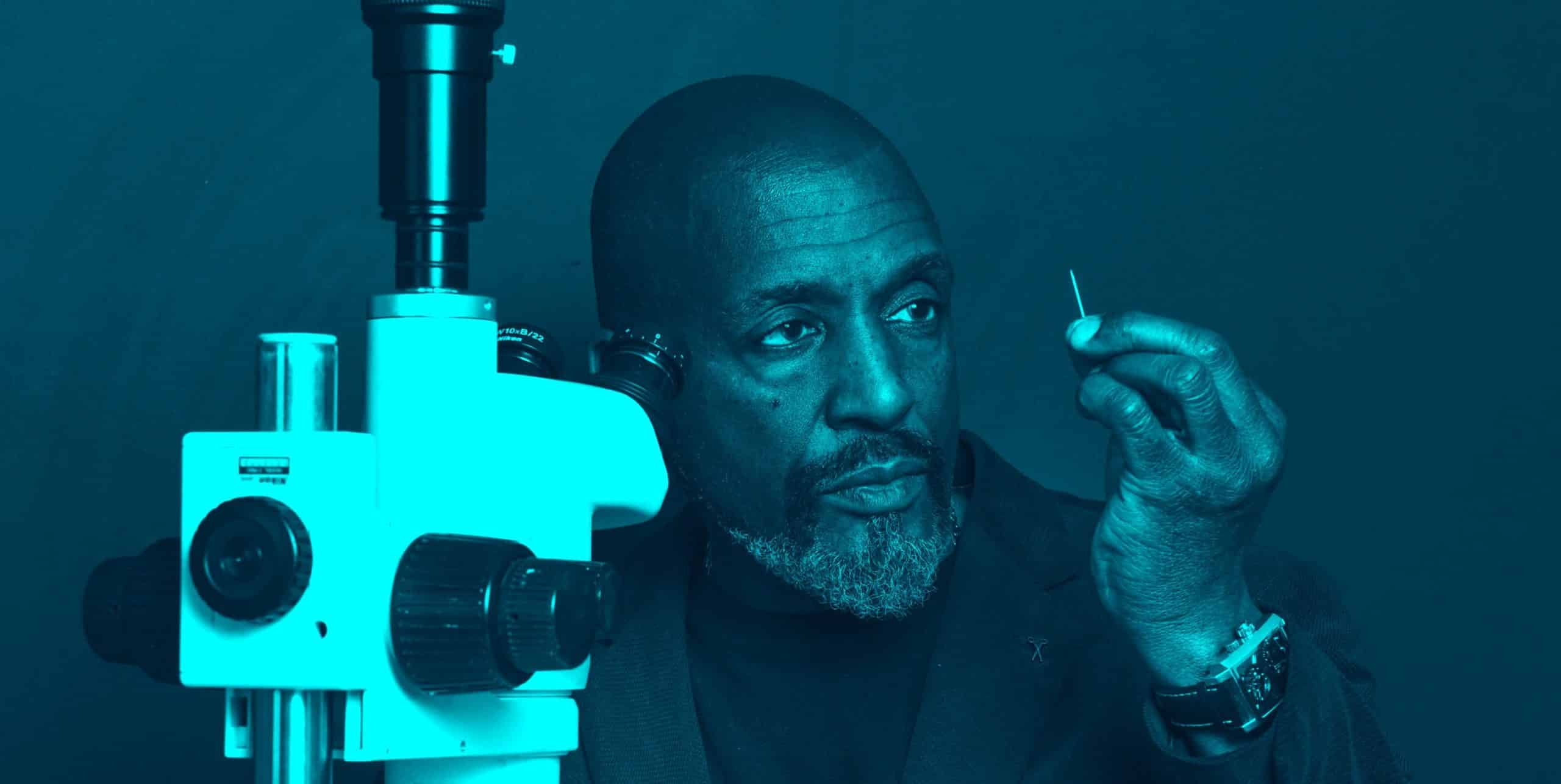For the past six months, we've been sharing our students' 'I can, I will' stories. This week, we had the opportunity to explore the journey of one of the most influential, inspirational and talented artists alive today... Dr Willard Wigan MBE.
Everybody has said ‘I can, I will’ at some point in their lives. Our learners say it when they enrol on a course with us, and they say it to overcome hurdles in their personal lives, too. The most successful people in the world have said ‘I can, I will,’ and they continue to say it in order to stay at the top of their game.
The fact is that limits only exist in the mind.
To prove it, we met with world-famous artist, Willard Wigan MBE, to find out how he makes the impossible, possible.
Willard Wigan is famous for creating tiny, beautifully crafted sculptures that are invisible to the naked eye. To create these wonderous micro-sculptures, Wigan goes through painstaking concentration, holding his breath, carving and painting in between heartbeats. The final result is a masterpiece perfectly nested in the eye of a needle, a magical reality through the lens of a microscope.
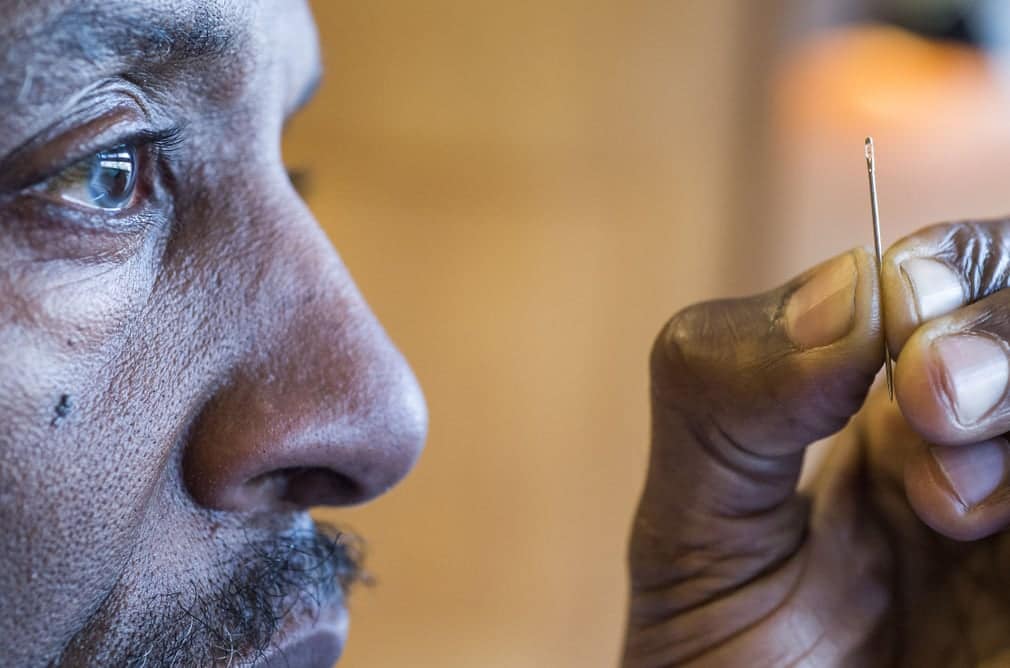
Like any talent, Wigan practiced to master his skill, but it wasn’t without his share of hardship. Growing up, Wigan faced ridicule and humiliation for struggling to read and write. In the 60s, schools did not so readily diagnose and support dyslexic students, so Wigan became isolated and alone. Without a vision or academic pathway, he escaped to his own world, expanding his imagination, playing, building, sculpting. And at five years old, Wigan had fabricated a home for ants. That was just the start.
Our interest in Wigan goes beyond his work and lies in his motivations, his visions, and his self-belief. We wanted to find out how he found his purpose and overcame doubt. Also, we wanted to discover how learning took on a different meaning for him.
Whilst utterly inspired by his creative genius, we drew an obvious connection between Wigan and our learners... have a read of our exclusive interview with Willard Wigan and you too will feel inspired and equally empowered.
Getting to Know Willard Wigan
Willard, could you start off by telling us something that most people don’t know about you?
Outside of work, I have a passion for radio control flying. Flight is an obsession of mine. I think it stems from my childhood when I used to lay under the sycamore trees and watch the seeds falling. My mind was wondering what made them fall but seem like they’re floating at the same time. I would get lost in these thoughts.
I find flying objects a kind of escapism. So, I have a collection of RC planes, helicopters and other kinds of RC aircraft. I can spend hours outside flying them.
You talk about escapism. Do you find that in music too?
I do enjoy music, but only once I’ve completed a sculpture. I can’t listen to music when I’m working because I need to be able to give my full concentration to the task at hand, I can’t have any distractions. But afterward when I’m relaxing, I sometimes listen to 70’s soul music or Motown, I love that genre.
What things do you appreciate the most in life?
Simply being alive. I appreciate the little things that most people don’t stop to think about, and then I can't stop thinking about it. Just being curious makes me think about new things to appreciate, like the stars and sun. I appreciate feeling loved and having good conversations.
The Journey to Success
Tell us about your pathway into microscopic sculpting?
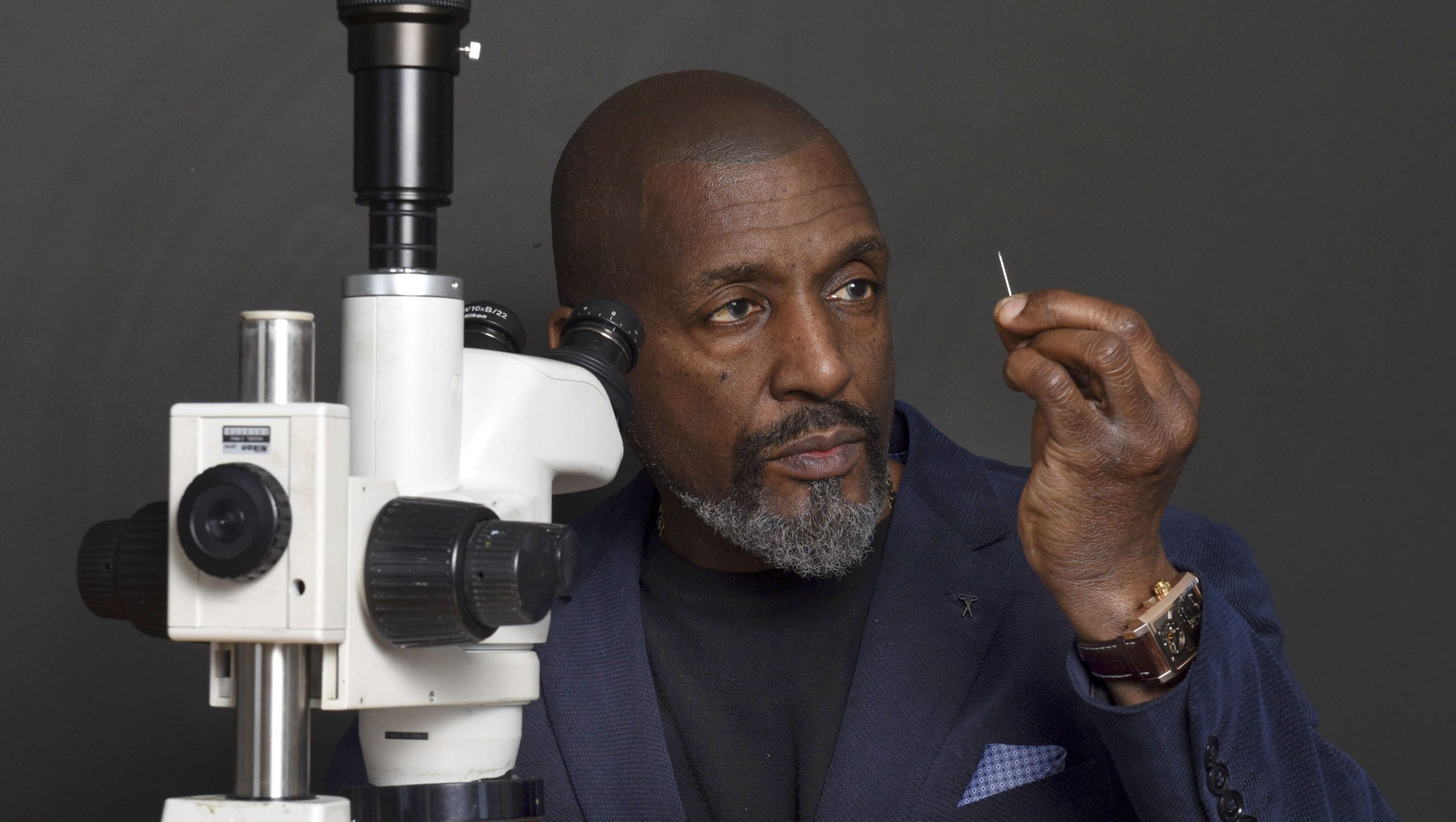
As a young child, I escaped ridicule at school by building homes for ants out of sticks. Teachers would tell me that I was dumb, that I wouldn’t achieve anything in life, and for a long time that brought me down. I had to find myself first, and be comfortable in my own skin before my true skills could emerge.
So, I'd continued finding an escape and I was always in and out of work, doing labour jobs here and there with no sense of purpose. However, I continued creating sculptures because that’s what I enjoyed doing. Things started to change when my sculptures got smaller when I was around 29 years old.
My work had always been tiny, but this was the time when I pushed myself to see how tiny I could go. That kickstarted a sort of domino effect, as people started to notice what I do, and they’d talk about it. When my sculpture of Adam and Eve on a cocktail stick made it into Birmingham Mail, I started to realise that I was good at something, and this was a game-changer.

In 2006, I forged a motorcycle out of 24-carat gold inside a hollowed-out hair that I pulled from my neck. This won me my first Guinness World Record for the smallest ever sculpture made by human hands.
Continuing to push myself and striving to be better, I went on to break my own record in 2009, with a sculpture of a fetus carved from Kevlar and placed within the hollowed hole of a single stubble from my beard. It’s the size of a human blood cell, small enough to fit into a human embryo.
What you do is unbelievable and must be incredibly challenging. How do you overcome challenges?
Of course, it’s challenging, but mastering the physical aspect of my work all comes down to the mind. To be honest with you, my biggest challenge has always been self-confidence.

For a long time, I didn’t realise or acknowledge that I had dyslexia and autism. Without dealing with this part of me, I hid from it and it stopped me from believing in myself. I always felt like I wasn't good enough for not being able to read or write properly because people ridiculed me. I thought I needed to be academic to be successful.
To overcome this, I had to grow into my strengths. I became better at communicating because I realised that if you can talk well, with kindness and good manners, you can achieve more by connecting with others. Communication is the key to reaching the heart of people.
I think that insecurity is that voice inside your head or devil on your shoulder. I decided to start listening to the other voice instead, the angel on the other shoulder. That doesn’t mean to say that I never listened to self-doubt because at times I did and I fell into a depression on a few occasions; but I turned that voice into a friend of mine instead, something that could help push me to be the best I could be.
That mindset is similar to an ethos we believe our students have, we call it an ‘I can, I will’ mindset. What does this phrase mean to you?

It's about commitment to achieving and constantly improving, for me. But in order to improve, you should never be fully satisfied with your best. I’m always trying to be better at what I do, and I think that makes me my own competition. It’s a personal challenge, but it’s the only one that matters. It’s about turning ‘can’t’ into a ‘can’ at every opportunity.
Everyone has something inside them that is their unique talent and there’s no such thing as ‘nothing.’ But... having that ‘I can, I will’ mindset will only get you so far. I think the most important thing is to have people around you who also believe in you and push you to find your way.
People are responsible for each other because the way you treat someone can make the biggest difference to whether they believe they will succeed or fail; it also changes the conversation they have with themselves too. I find it easier to believe something that will discourage me than to believe a compliment. That’s why I built a community of supporters to help me when I need it.
For Oxbridge students, it’s just as important to have tutors that tell them ‘you can, and you will,’ so that they start to believe it. Then they can say ‘I can, I will.’
Embracing his Strengths
Why is personal development, growth, and improvement important in life?
For a long time, I hid my autism from others, and I think I hid from it myself too. Over the last few years, I’ve learned that autism is a part of me that I’m proud of and accepting that has given me the chance to fully learn about myself.
With this personal growth, I have been able to be a role model for others. I educate others about my learning differences and share my own insights to teach others that it’s ok to ‘be you.’
I think personal development is important for everyone, but the only way to do it is to start by loving yourself first. Then everything else will follow.
My work is incredibly stressful, and I only find pleasure in finally finishing. That’s why I have to improve my mindset in order to improve my handiwork. A turning point was when I got my doctorate from Warwick University; being honoured for my contribution to art brought something out in me. It felt like I was the scarecrow in the Wizard of Oz, and I was being given a brain.
Could you elaborate on how you’ve adapted to living with autism and learning differences?
I always play to my strengths, which is the ability to talk to anyone about anything. Being clever isn’t just about reading and writing or holding qualifications. I think intelligence lies in your willingness to be open to learning from others.
Being a lifelong learner is about knowing there is always something more to be learned. When you have a condition like mine, you learn to find new ways to absorb information. Whether you have a learning difficulty or not, there are many different ways to learn other than just sitting an exam.
I’ve sat in a conference full of politicians, surgeons, and academics and held a conversation with them all night without letting my learning differences make me feel smaller than them. I know that speaking is my strength, so I have learned to speak well, make people smile and laugh. I'm just happy to be good company.
But I do think there should be more specialist teacher training implemented in schools for young people struggling with learning difficulties. And to those people like me, who left school with little confidence or qualifications, remember it’s never too late to learn.
What are the main skills you have mastered?

The most important skill I’ve developed is patience. You can imagine why... Try to keep very still right now and hold every part of your body in the same position. Hold your breath and focus on trying to move something small between your heartbeats.
This is the kind of intensity involved in my work... to create micro-sculptures so small they could be destroyed by a breath, I must have complete control over my body. Most importantly, I need the patience to control it, to focus and concentrate.
I’ve also developed the ability to manipulate materials, both for the sculptures and the tools I make for myself to sculpt with. I always say that if something you need doesn’t exist, create it for yourself. That way, you’ll always have the skill to provide for your own needs.
You’ve mastered that for sure. So, what comes next?
I’m going to carve Mount Rushmore out of a grain of sand. It’s an amazing landmark that I’ve always wanted to commemorate but haven’t got around to yet.
Also, I need to create a self-portrait to join my collection of micro-sculptures. Not just because all the greatest artists did a self-portrait, but because it seems fitting for the message in my art; growing up, people always made me feel small, so I want to turn that on its head by making myself as tiny as my work and make it my best piece.
I want to create my finest hour... I want to leave an unforgettable legacy. My work is a tiny, big message to never underestimate less. If I can remind people of this over and over, then I think I will have made a difference.
Willard is an Inspiration and a Lifelong Learner
Where do you get your inspiration from?
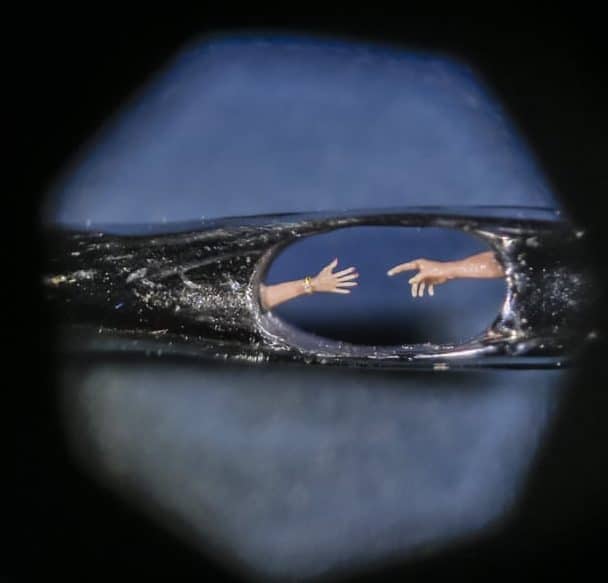
I’ve always loved ‘the greats’, especially Michaelangelo and Da Vinci, whose sculptures are so detailed and emotive. I am inspired by the Ancient Egyptians and their dedication to building the pyramids with such precision. Then there’s Picasso and Henry Moore, and the wood carvings of Grinling Gibbons. I love all their work!
I think learning from other artists is an important part of sharpening my own style.
Usually, though, my ideas come to me spontaneously. I spend a lot of time just thinking. The more curious I am about something, the more it leads me down a certain path towards creating a new piece.
Sometimes, it’s as simple as listening to people. For example, my friends were complaining that they never got enough sleep and always felt tired. This made me think about creating a piece to emphasize the importance of sleep. So, I sculpted two people sleeping in a bed. But the piece speaks a different story to different people; for some, it's a message of closeness and intimacy. For others, it's a reminder to switch off from a hectic life, and for others to learn to dream. It has different messages for everyone.

What is something you still want to learn?
I’d like to learn some different languages so I can connect with people across the world. But sometimes, I think that my art is my voice. By expressing myself through micro-sculptures, I can communicate in lots of different languages already. It allows me to speak to people’s imaginations, wonder, and curiosity.
Learning more about history interests me too.
Encouraging Students to Find Their Purpose
We know you’ve got a school campaign coming up. Can you tell us a bit about this tour?
I’m kicking of the new year with a tour of the UK and USA, going into schools to give presentations about my life, my work, and my advice for the children.
The aim is to encourage young people to dream the impossible and believe they can achieve anything. If they think they can climb a wall, I want to make them feel like they can climb a mountain. Then I want them to think they can climb Mount Everest.
I’ve given talks to young people before who've come up to me afterward to shake my hand; they'd tell me how I’ve inspired them to believe in themselves. Sometimes, the teachers point me in the direction of students who are a bit behind or lacking in confidence. I always spend extra time talking to them and try to help them find one thing they’re good at. Then I encourage them to pursue it.
I’m really excited about this tour because I know if I can inspire just one young person to find their true calling, I’ll have made a difference.
It’s great that you’re working within these schools to help the children. What do you think about online learning as a way for some students to get the qualifications they need?
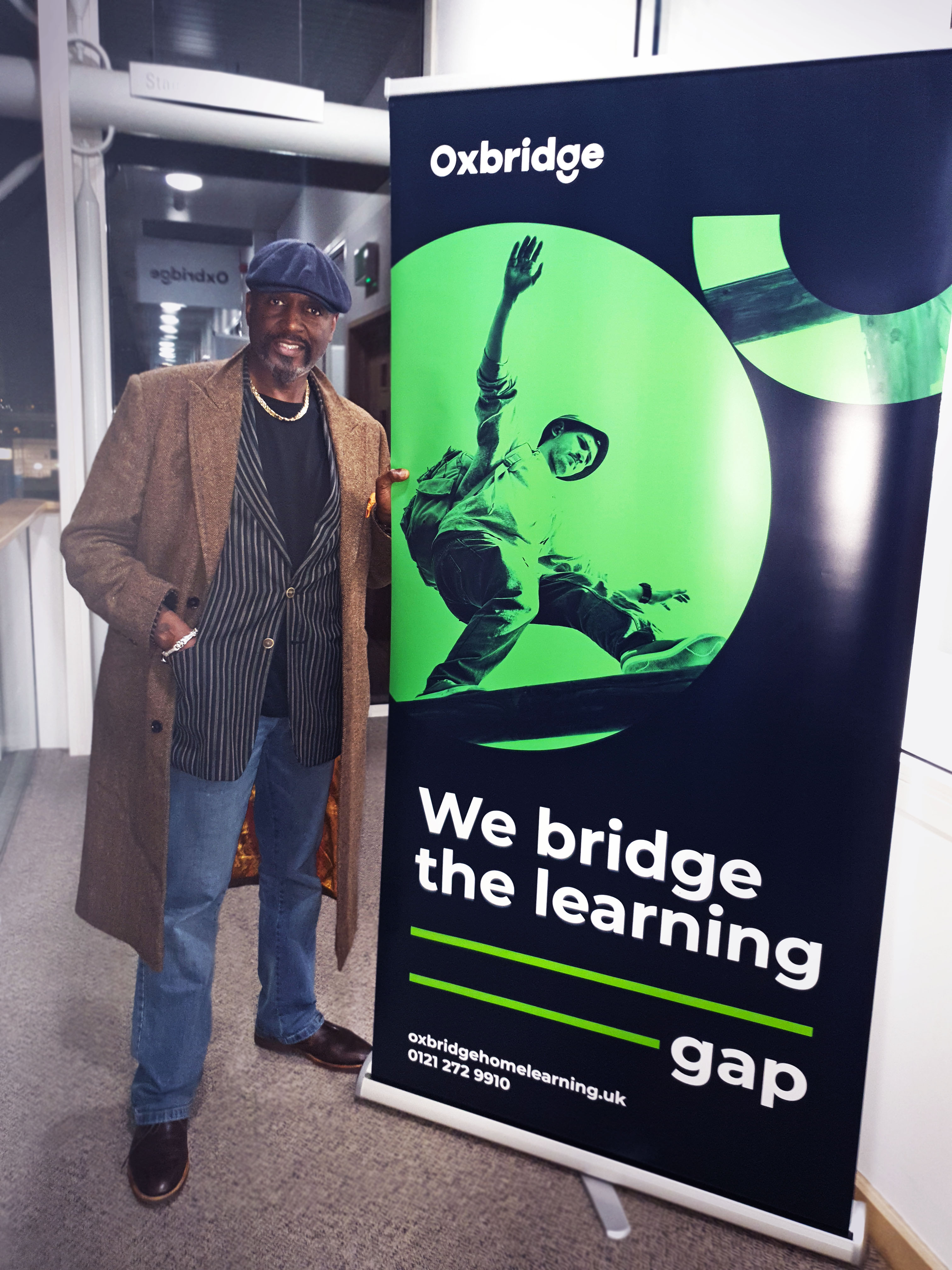
I think online learning works as long as you still have real human interaction, which is so important in learning. I’m sure that when students have the chance for that extra human care and support, home learning can greatly improve their education.
Some people just don’t cope well in a classroom environment or don’t have the chance to go back to school. So, what you do at Oxbridge helps those people to get to where they want to be. If I had a personal tutor who supported me and believed in me, my experience of the education system would have been completely different.
What advice do you have for our home learning students?
If you’ve found the thing you’re good at that you most enjoy in life, keep working hard at it and you WILL get there when the time is right. You just have to believe in yourself no matter what.
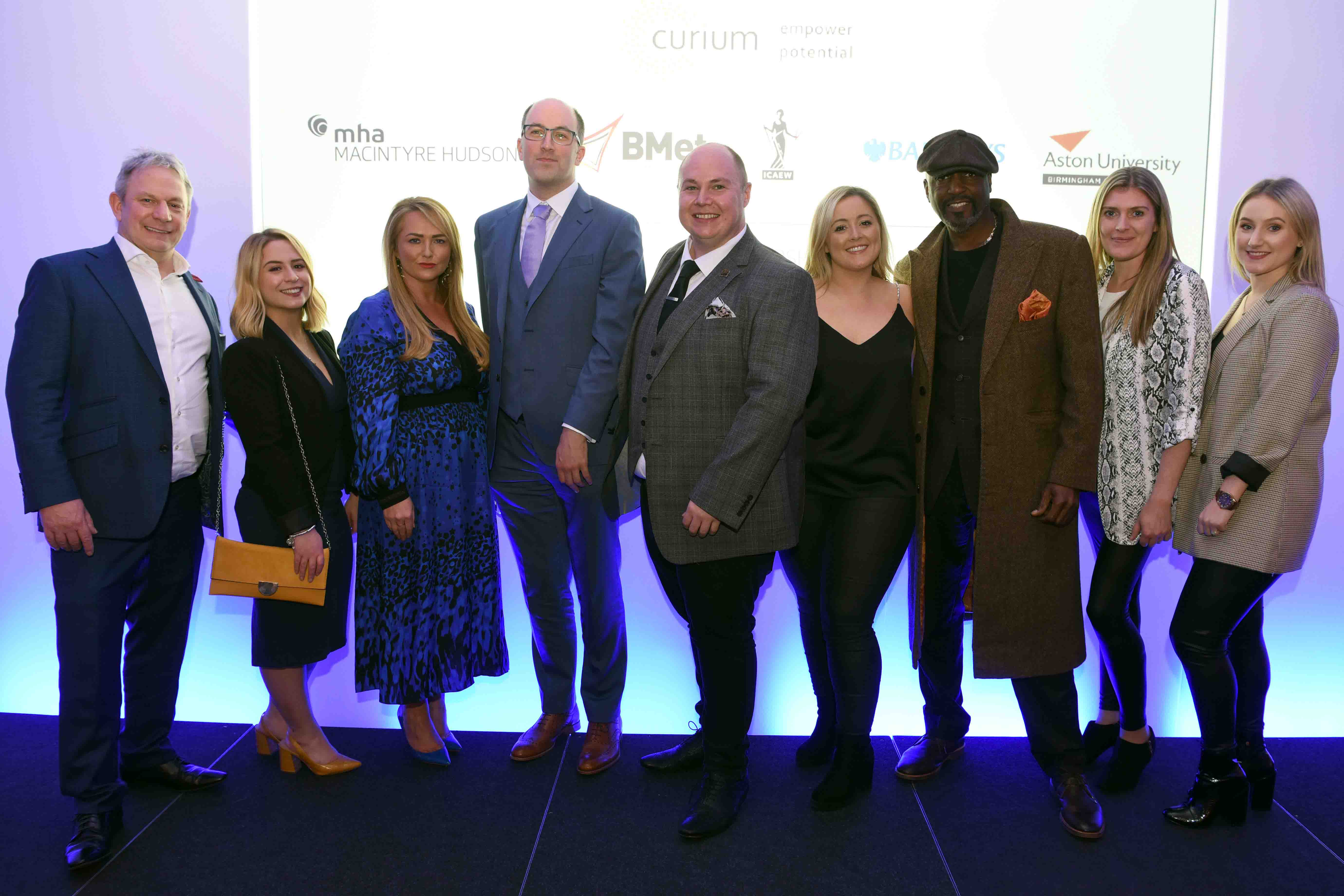
Oxbridge was delighted to have the support of Willard Wigan at the West Midlands Leadership Awards on Friday 15th November 2019.
Wigan is a true inspiration for our students and a fantastic ambassador of the Oxbridge ethos: I can, I will.
